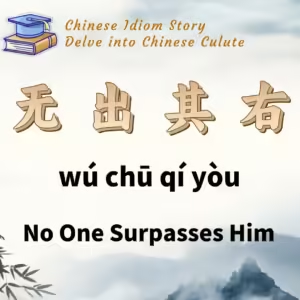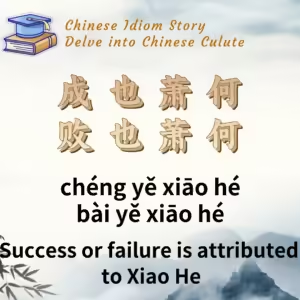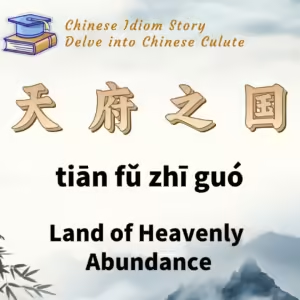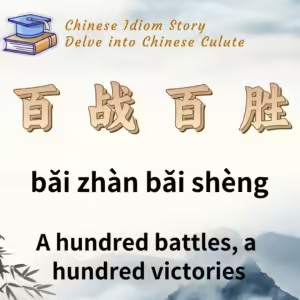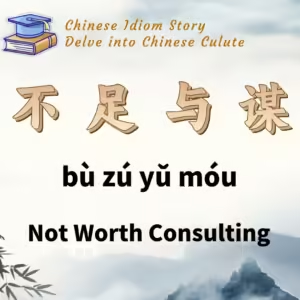
Chinese Idiom: 盖世之才 (Gai Shi Zhi Cai)
English Translation: Talent that surpasses the world
pīn yīn: gài shì zhī cái
Idiom Meaning: Refers to someone who is the best in their time, unique and unparalleled; often used as an exaggerated praise.
Historical Source: This idiom comes from the Northern Song Dynasty, specifically from Su Shi’s essay titled “Liu Hou Lun” (《留侯论》).
Idiom Story:
The term “留侯” (Liú Hóu) refers to Zhang Liang, the main strategist of Liu Bang, the founder of the Han Dynasty. According to legend, during the late Qin Dynasty, after Zhang Liang’s assassination attempt on Qin Shi Huang failed, he fled and hid in Xiapi. One day, Zhang Liang encountered an unfamiliar old man on the Xiapi bridge, who asked him to retrieve a pair of shoes that had fallen into the water and put them on for him. Although Zhang Liang felt humiliated, he complied.
Later, the old man asked Zhang Liang to come back to the bridge in five days. During his first two visits, the old man criticized Zhang Liang for arriving too late. It was only on the third visit that Zhang Liang received a military book as a gift from the old man.
In Su Shi’s essay written during the reign of Emperor Ren of Song in the sixth year of the Jiayou era, he expressed his views on Zhang Liang’s experience. The essay centers around the concept of “忍” (rěn, meaning patience) and cites historical facts to argue that “tolerating minor grievances leads to great strategies” is key to success or failure in one’s endeavors. Su Shi observed that in the conflict between Liu Bang and Xiang Yu, the difference between their victories and failures lay in their ability to endure:
“Xiang Yu could not endure, so despite winning countless battles, he often rashly used his elite forces. Liu Bang, however, could endure, conserving his strength while waiting for Xiang Yu to weaken. This lesson was taught to him by Zhang Liang.”
It was indeed the old man on the bridge who taught Zhang Liang the value of patience. Su Shi believed that the old man’s gift of the military book was not merely to impart knowledge but rather to teach Zhang Liang to endure small grievances in order to accomplish greater goals. He wrote:
“…the one with talent surpassing the world, does not aim for the strategies of Yi Yin or Taigong, but rather chooses the plans of Jing Ke and Nie Zheng, hoping for a stroke of luck to avoid death. This is what the old man on the bridge deeply regrets. Therefore, he pretends to be very arrogant and rude to deeply provoke him. If he can endure, he may achieve great things. Hence it is said, ‘this child is teachable.'”
The essence of the passage suggests that someone as talented as Zhang Liang initially sought to emulate the rash actions of Jing Ke and Nie Zheng rather than the deep strategies of Yi Yin and Taigong, hoping for a stroke of luck to escape death. The old man’s pretentious arrogance served to provoke Zhang Liang into realizing that true greatness comes from patience and wisdom.
Eventually, the phrase “子房以盖世之才” (Zifang yǐ gàishì zhī cái) evolved into the idiom “盖世之才” (gàishì zhī cái) or “盖世无双” (gàishì wúshuāng), meaning someone with extraordinary talent unmatched in the world.

